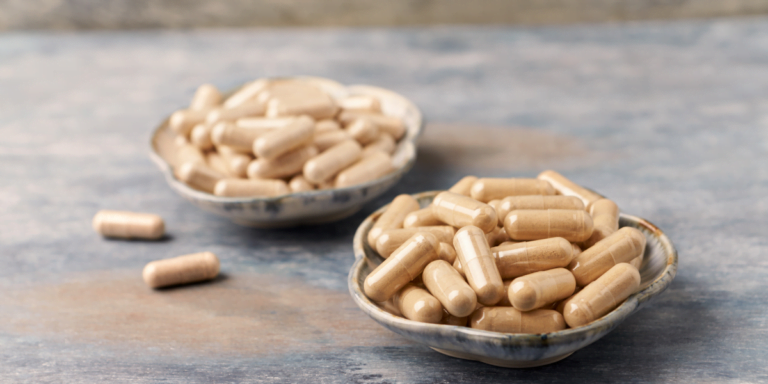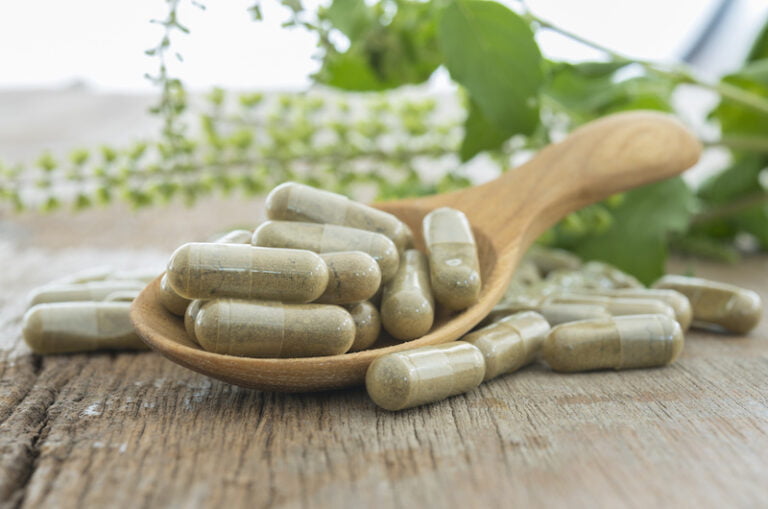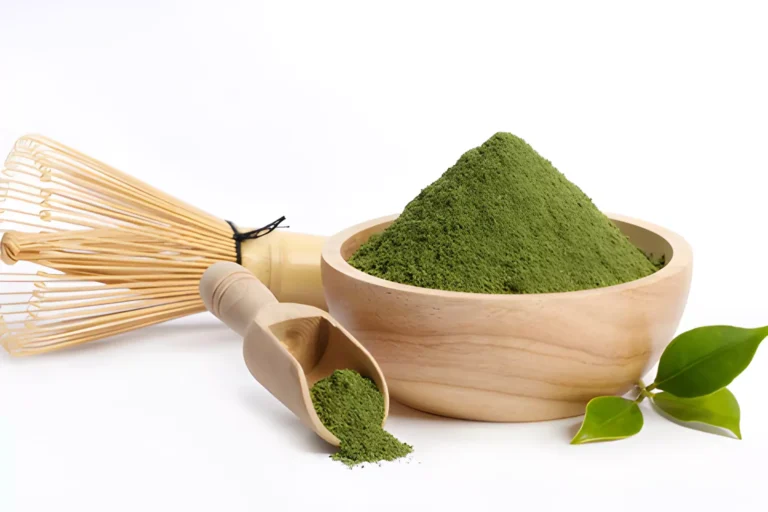Basil Seeds vs Chia Seeds: The Detailed Comparison [2023]
Basil and chia seeds are two popular superfoods known for their nutritional benefits. Both seeds are rich in fiber, protein, omega-3 fatty acids, and antioxidants. These seeds can help with weight loss, digestion, blood sugar control, and cardiovascular health.
However, there are also some differences between basil seeds and chia seeds that you should know before adding them to your diet. In this article, we will compare basil seeds vs chia seeds in terms of their appearance, flavor, uses, health benefits, availability, cost, and nutrition.
So let’s get started.
What is Basil Seeds (Sabja Seeds)?
Basil seeds, also known as sabja seeds, are the seeds of the sweet basil plant. They are tiny, oval-shaped seeds that are black or dark brown. Basil seeds have a mild, slightly sweet flavor.
They are a good source of dietary fiber, protein, healthy fats, and minerals such as calcium, iron, and magnesium. They also contain antioxidants, which can help to protect cells from damage.
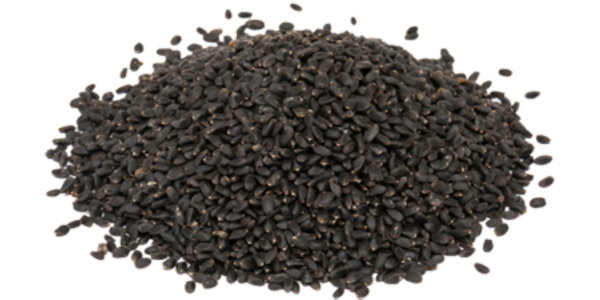
The seeds can be eaten raw, soaked in water, or cooked. When soaked in water, basil seeds swell and form a gel-like substance. This makes them a good thickener for soups, stews, and sauces. Basil seeds can also be added to smoothies, yogurt, oatmeal, and other foods and drinks.
What is Chia Seeds
Chia seeds are the seeds of the Salvia hispanica plant, which is native to Mexico and Central America. They are tiny, oval-shaped seeds in various colors, including black, white, and brown. Chia seeds have a mild, nutty flavor.
Like the sabja seeds, chia seeds are also a good source of dietary fiber, protein, healthy fats, and minerals. They also contain omega-3 fatty acids, which are essential for human health. Chia seeds are often used in Mexican and Central American cuisine.
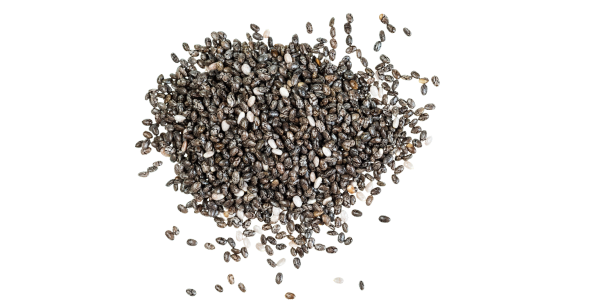
The seeds are eaten raw or soaked in water. When soaked in water, chia seeds absorb up to 10 times their weight in water, forming a gel-like substance. Soaked chia seeds can be added to smoothies, yogurt, oatmeal, and other foods and drinks.
Differences between Basil Seeds and Chia Seeds
Now you know what are basil and chia seeds. Let’s compare them in terms of appearance, size, health benefit, nutrition value, and cost in detail.
Appearance, Size, and Color
Basil seeds are slightly smaller than chia seeds and have a more oval shape. Chia seeds are slightly larger and have a rounder shape. Basil seeds are typically black or dark brown, while chia seeds can be black, white, or brown. Furthermore, when soaked in water, chia seeds can swell up to ten times their weight and become large. On the other hand, basil seeds, when soaked in water, form a translucent cover outside the seed and appear much larger than chia seeds.
Flavor Profile and Aroma
Another difference between basil and chia seeds is their flavor profile and aroma. Basil seeds have a mild flavor that is slightly sweet and floral. They do not have a strong aroma when dry or soaked. Chia seeds have a nutty flavor that is slightly bitter and earthy. They have a faint aroma similar to sesame seeds when dry or soaked.
Culinary Uses
Both the seeds can be eaten raw, soaked in water, or cooked. They can be added to smoothies, yogurt, oatmeal, cereal, and other foods and drinks. Basil seeds are also often used in traditional Indian and Southeast Asian cuisine. Chia seeds are often used in Mexican and Central American cuisine.
Health Benefits
Both chia and basil seeds are packed with nutrients. They are a good source of fiber, protein, healthy fats, antioxidants, and minerals such as calcium, iron, and magnesium. But apart from these, here are key health benefits of basil seeds.
- Improved digestive health
- Weight loss
- Reduced blood sugar levels
- Lowered cholesterol levels
- Improved cardiovascular health
- Reduced inflammation
Chia seeds may offer the following health benefits:
- Improved digestive health
- Weight loss
- Reduced blood sugar levels
- Lowered cholesterol levels
- Improved cardiovascular health
- Reduced inflammation
- Increased energy levels
- Improved brain function
Availability and Cost
Both seeds are widely available in most grocery stores. However, chia seeds are generally more expensive than basil seeds. A 100-gram pack of basil seeds costs around $2-$3, while chia seeds cost around $4-$6.
Basil Seeds vs Chia Seeds Nutrition Comparison
The following table compares the nutritional content of 100 grams of basil seeds and chia seeds:
| Nutritional Value (per 100 g) | Basil Seeds | Chia Seeds |
| Calories | 473 | 486 |
| Fat | 25 g | 30.7 g |
| Protein | 20 g | 16.5 g |
| Fiber | 40.5 g | 34.5 g |
| Carb | 42 g | 42 g |
As seen from the above table, compared to basil seeds, chia seeds contain more calories, while basil seeds are high in fiber and protein. So, it’s up to you to choose the right seed for your daily needs.
Which is Better for Weight Loss: Basil or Chia Seeds?
Both basil seeds and chia seeds may help with weight loss. They are both low in calories and high in fiber, which can help you feel full and satisfied. Additionally, both seeds have been shown to boost metabolism and promote fat burning.
However, chia seeds may be more effective for weight loss than basil seeds. Chia seeds contain more omega-3 fatty acids, which have been shown to suppress appetite and promote satiety. Additionally, chia seeds can absorb more water than basil seeds, which can help you feel fuller.
Conclusion
Basil seeds and chia seeds are both nutritious and versatile seeds that can be incorporated into your diet in various ways. They have many similarities and differences in appearance, flavor, uses, health benefits, availability, cost, and nutrition. Depending on your personal preferences and goals, you may choose to use either basil seeds, chia seeds, or both in your daily meals and snacks.
If you are looking for a seed that is high in fiber and can help you feel full, then basil and chia seeds are good options. But if you are looking for a seed high in omega-3 fatty acids, then chia seeds are the better choice. However, it is essential to note that basil seeds cannot be eaten without soaking them in water or other liquids first, as they can cause choking or blockage in the throat or intestines.

